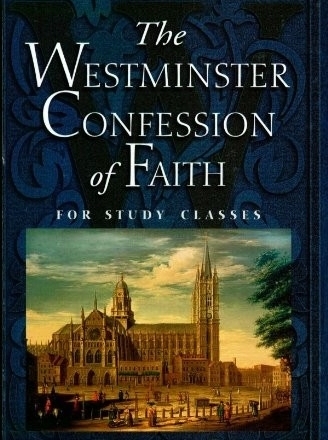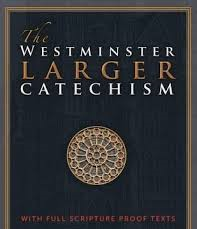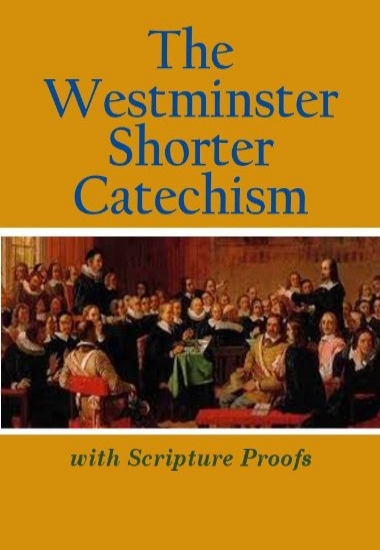“Ordinary Means. Extraordinary Grace.”
CHRIST
Our Father’s Son, the Lord of all, the Beginner of all beginnings, our foundation and cornerstone, the redeemer and friend of our Souls, the sum and substance of all we want to be and do.
COVENANT
God’s bond to us of law and love, written in stone, warm as blood. Enduring because it is promised, and binding because it is law.
CHURCH
The family of God, a pilgrim band of disciples, embracing the Savior, carrying the cross, reaching the lost, feeding the hungry, challenging our culture, marching to glory, worshipping the Lord.
ASSOCIATE REFORMED PRESBYTERIAN
We are grateful for the unity all believers enjoy in Christ, but we also treasure the rich heritage of our own denomination. Our legacy in the Associated Reformed Presbyterian Church (ARP) roots us in a rich Christian tradition that transcends our contemporary evangelical age and connects us to the witness of saints across time and place.
Associate. Reformed. Presbyterian. These are words with roots, reaching down to the rich, fertile soil of 17th Century Scotland, where the Presbyterians faced the ruthless King of England, Charles II, and his efforts to make the Church of Scotland submit to His rule.
In the "killing times" of the 1680s, many of these men, women, and children paid the ultimate price for their devotion to King Jesus. Over the next 100 years, their spiritual children moved to America, settling the middle colonies of the New World with their rugged, determined piety. They formed congregations known as Associate Presbyterian Churches and Reformed Presbyterian Churches.
In 1782 in Philadelphia, these congregations merged to form a new denomination, the Associate Reformed Church. Today known as the Associate Reformed Presbyterian Church, we still hold dearly to the Headship of Christ in His church on earth, and our denomination is considered perhaps the oldest conservative Christian denomination in America.
WHAT DOES "PRESBYTERIAN" MEAN?
“Presbyterian” derives from the Greek word for "elder" or "overseer." The term “presbyterian” describes a church governed by a session, which is a gathering of elders. The church elects these men from their midst on the basis of their biblical qualifications (II Timothy 3; Titus 1).
The principle role of the elders is to oversee the spiritual needs of the congregation. A presbytery consists of all the elders and ministers of a particular geographic area. Today, there are ten presbyteries in North America which together form the General Synod of the Associate Reformed Presbyterian Church.
SUMMARY
GOD: We believe in ONE triune God - Father, Son, and Holy Spirit - who is infinite, eternal, and unchangeable in His being, wisdom power, holiness, justice, goodness, and truth.
JESUS CHRIST: We believe Jesus Christ is God's incarnate Son, fully Divine and fully man, who died in our place for our sins as our redeemer. We believe He was raised again from the dead on the third day and ascended bodily up into heaven where He now sits as Lord over all at the Father's right hand.
THE BIBLE: We believe the Bible is the only inerrant and infallible Word of God.
MANKIND: We believe all men are by nature dead in sin and live under the wrath of God. God saves us by His grace alone through faith alone in Christ alone.
CHRISTIAN LIFE: We believe as Christians, our chief end is to glorify God by enjoying Him forever, endeavoring to worship Him in Spirit and in Truth, and to order our hearts and our lives according to His Word.
FAMILY: We believe in the Christian family as the basic building block of the visible Church, and we baptize our children as a sign and a seal of their membership in this covenant community. We believe our children need to put their faith in Jesus and repent from their sins in order to be saved.
THE CHURCH: We believe the Church is an essential part of God's plan for communicating grace to sinners. Outside this body, there is no ordinary way to grow in the grace and knowledge of Jesus Christ.
CREEDs
We all have a creed. Everyone believes something about everything. Writing these creeds down makes a powerful, tangible, and definitive statement - a standard by which we can measure our thinking, speaking, and living for God. Our creeds include the historic Westminster Confession of Faith as well as the Westminster Shorter and Larger Catechisms.
Unlike Scripture, these documents are neither inerrant nor are they the rule of our faith and practice at Christ Covenant. The Bible alone holds this cherished position in our hearts and minds. However, we find them to be a helpful summary of what we believe the Bible teaches about almost everything.
OUR MINISTRIES

LOVE WELL. THINK DEEPLY.
At Christ Covenant Church, our ministries overflow from loving God well and thinking deeply. This requires us to to “order our affections” as Augustine once put it. There is great freedom in this order, for the right love of God will overflow into right action and service. Indeed, Augustine wrote, “Love God and do whatever you please: for the soul trained in love to God will do nothing to offend the One who is Beloved.”
So how are our souls trained in love to God? In Matthew 22, Jesus recounts to the Pharisee, “You shall love the Lord your God with all your heart and with all your soul and with all your mind.” Of course, we expect matters of religion to involve the heart and soul, but Jesus tells us also to love God with our minds. This is what the Apostle Paul meant when he wrote to “take every thought captive to obey Christ” (2 Cor. 10:5). Thinking Biblically affects what we think, why we think, and how we think.
WHAT, WHY, HOW
WHAT WE THINK
First, we believe the world around us was created through Jesus and for Jesus. "All things were created through Him and for Him. And he is before all things, and in Him all things hold together” (Col. 1:16-17). All that He created is good (Gen. 1:31) and everything in the world belongs to and relates to its Creator. He reveals Himself through both general revelation, by the things He has made, and through special revelation in the Bible. Thus, Scripture is the lens through which we interpret the world. To think Biblically is to seek to understand the world - its people, it problems, and Biblical solutions - all in the light of God’s Word.
WHY WE THINK
We want to think Biblically because it reflects the image of God when we do. The Bible tells us that we were made in His image. We were commanded to have dominion over the earth (Gen. 1:26). Part of obeying this command means to understand the world and everything in it as best we can. Because God made everything for His own glory, thinking Biblically should lead us to a greater understanding of His character.
HOW WE THINK
Thinking Biblically calls us to look for and delight in the glory of God in everything. We see knowledge as intermediate; in other words, mere knowledge about God and His world is worth nothing if it does not lead us to greater love and devotion to Him. Examining the creation rightly will always lead us to a greater knowledge of the Creator. If the forms and patterns of our thinking do not lead us to awe and adoration, we need to think more carefully. True Biblical thinking should always lead us to God. And thinking Biblically not only involves thinking in Biblical categories, but also in Biblical ways.
For example, we are told in Philippians 4:8, “Finally, brothers, whatever is true, whatever is honorable, whatever is just, whatever is pure, whatever is lovely, whatever is commendable, if there is any excellence, if there is anything worthy of praise, think about these things.” Perhaps better than any other single place in Scripture, Romans 12:2 sums up Biblical thinking. “Do not be conformed to this world, but be transformed by the renewal of your mind that by testing you may discern what is the will of God, what is good and acceptable and perfect.”
IN SUMMARY
We encourage our church family to love well, think deeply, and let their ministries - both individual and corporate - overflow from the knowledge of God in their hearts and minds. We encourage our members to be devotional, to be prayerful, to be conversational – and to be readers.
We publish weekly Covenanter devotionals and distribute Table Talk devotionals monthly. Together we study great books written by dead theologians, we have meals and roundtable discussions, we hold prayer meetings, and we commit ourselves to the exchange of ideas as we grow in Christ together in church life.
Our ministries flow from the Word of God and from the grace given to His people, taking the form of one of the following six types: WORSHIP, DISCIPLESHIP, EVANGELISM, MERCY, HOSPITALITY, and STEWARDSHIP.














